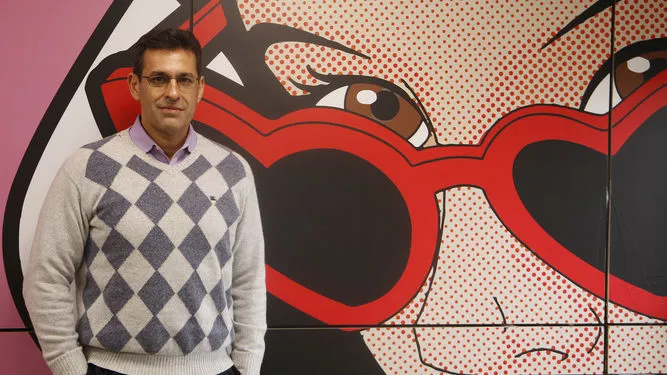Juan Domínguez-Bendala is a native of Seville and resides in Miami, where he directs the stem cell team of the Dri Research Institute.
-How did you land in Miami?
-That a succession of accidents.I was born in Seville in the year 70 and studied in the White Fathers.I was always attracted to look for insects and look through the microscope.When I chose biology I opted for physics and mathematics, which I didn't like so much, and I had to leave literature, my other passion.
-What titles inspired him?
-He was everything that fell into my hands.From a young age I read all the novels of Julio Verne, Emilio Salgari, Conan Doyle.A book left me a very important mark: microbes hunters.
-Arest influences?
-At the 14 years in a Sunday I read an article about a group in Scotland that had created a transgenic sheep.The milk milked in this sheep contained a protein necessary to treat a lung disease.It seemed incredible.Years later I ended up working with the group that had created that sheep.
"Today we are seeing clinical trials with stem cells that were recently science fiction"
-How did he make the leap?
-When I finished biology in Seville I went to London to make a master's degree in molecular biology and biotechnology.My initial idea was to return to Spain, but I was the opportunity to study the doctorate at the Roslin Institute of Scotland.They proposed in 1997 to do the doctorate with one of the parents of the Dolly sheep, Jim McWhir.It was my mentor.I was there until 2000.
-And Miami?
-During my stay in London I met what is my wife, Xiomara mouthvich.She is Argentina and resided in Miami.When I finished the doctorate I looked for a job and, in Miami, the DRI Institute was planning to open a group of stem cells to cure type I diabetes. I went to Miami and formed this team in 2001.
-And there he stayed?
-Yeah.I have two children of four and six years: Adrián and Carolina.They were born in Miami, but I try to bring them every time I can.On this last trip they have come with me.I want you to grow with links with Seville.
-The objective of the DRI Institute is very ambitious: healing diabetes.
-The type I diabetes is an autoimmune disease: the immune system recognizes as strange the pancreatic beta cells that are responsible for producing insulin.There is no cure, nor is the cause known.There is a genetic component, but we have cases of twin brothers, in which one suffers diabetes and the other does not;so that external factors are also involved.Several theories are considered: a theory considers that the cause is a virus and another is the theory of hygiene, which explains the increase in autoimmune diseases.Excess hygiene causes the immune system to begin to recognize as strange structures that are not;And, if the person has genetic predisposition to autoimmunity, attacks them.
-Obsession for cleaning.
-The children take things to their mouths innate.If it were not a behavior selected by the evolution, it would not persist.It gives to think.
-What are the advances in diabetes in the US?
-The Dri Institute is a pioneer in the development of the islet transplant.When a donor arrives we extract the cells from the pancreas that produce insulin and transplant them to the patient.But it has complications: being a transplant, they need immunosuppression to avoid rejection;And, on the other hand, we will have made 2,000, but there are millions of diabetics.
-What does your group work in?
-My group works with stem cells to get them to become beta cells.A very laborious process.The stem cell is pluripotent and does not like to become pancreas, tends to become a heart and nervous system.
-Are there clinical trials?
-The first clinical trials with stem cells are developedEmbrynia in California.
-What do you deepen?
-We disappear that there are stem cells within the pancreas that are capable of producing beta cells (insulin producers) when they are stimulated.Through very sophisticated techniques we can fish those cells and place them on plates, in the presence of a chemical compound (BMP7), a protein that acts as a fuel.They begin to proliferate.And stem cells become beta cells.
-Have you started studying it in animals?
-Yes, we have demonstrated it in mice and we are doing the necessary preclinical experiments to take this therapy to patients.We also work to modulate the immune system and prevent it from attacking insulin producing cells.
-When will the cure come?
-We are closer than ever a healing of diabetes, but first we will see therapeutic advances that will greatly improve the quality of life of patients.



